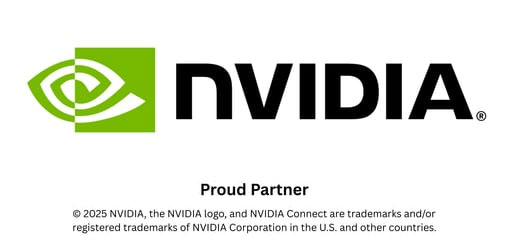Europe is placing a bold wager. Combining quantum computing with AI isn’t just a moonshot – it’s a strategic frontier in full motion. Having guided businesses through the complexities of AI and compliance, I see this as the continent’s next defining moment.
Based on real-world developments and verified data, here’s an in-depth view of how Europe is shaping the future and what that means for organisations and policymakers.
From the UK to the EU, national leaders are investing in the hardware foundation of quantum.
The UK has pledged over £500 million to quantum research over four years, alongside a £2.5 billion roadmap to leadership by 2035.
The EU’s Digital Decade aims for its first quantum-accelerated supercomputer in 2025 and full quantum computing capabilities by 2030, supported by initiatives like the Chips Act and forthcoming Quantum Act.
These moves reflect a collective strategy: ensuring Europe controls its quantum destiny, crucial for sovereignty in computing and security.

Finland’s Quantum AI Flagship: LUMI‑IQ & VTT Q50
Finland has emerged as a clear trailblazer in hybrid quantum-AI systems:
LUMI‑IQ Platform
Housed in Kajaani, the LUMI supercomputer (ranked 9th in the June 2025 Top 500 list) is integrating a quantum computing partition – LUMI‑IQ – for hybrid HPC+AI+QC workloads. github csc lumi-supercomputer
This platform welcomes European startups, SMEs and academia to experiment in cutting-edge quantum‑AI research free of charge. cscVTT Q50 Quantum Computer
On 4 March 2025, VTT and IQM launched Europe’s first 50‑qubit superconducting general-purpose quantum computer, connecting it to LUMI. lumi-supercomputer
It’s open to universities and companies via the FiQCI infrastructure, marking a shift from lab experiments to real-world deployments. csc
Together, LUMI‑IQ and VTT Q50 offer the world’s most advanced public hybrid HPC‑AI‑QC research platform – a unique environment set to empower European innovators. csc
From Pilot to Pan-European Momentum
Europe’s quantum ecosystem is growing—but remains decentralised.
The Quantum Flagship (2018), with €1 billion funding and over 5000 researchers, has created a strong base for quantum-AI initiatives.
Yet Deloitte and DIGITALEUROPE caution that success depends on better coordination of national programmes and investments.
Big strides are happening: Czech, Spanish and Italian quantum systems are also being linked to national HPC centres under the EuroHPC AI Factories network. lumi-supercomputer
Commercial Momentum Is Building

European companies are turning potential into commercialisation:
Multiverse Computing (Spain) offers quantum-AI tools for logistics, finance and energy.
PhysicsX (UK) leverages quantum simulations in materials science and engineering, with a $175 million valuation backed by Siemens and Temasek. datacenter-forum
Hardware collaboration continues: IonQ’s $1 billion acquisition of Oxford Ionics shows global confidence in European quantum tech.
These moves point to a growing ecosystem where breakthrough ideas turn into product‑ready solutions.
Real-World Use Cases Taking Shape
Quantum-AI platforms in Finland are already showing results:
Health and materials: Collaborative research is exploring how quantum can support drug design, brain imaging and climate models – use cases that classical systems struggle with.
Cyber‑security risk: 67% of European IT professionals fear that quantum may break current encryption, but fewer than 5% have planned defences. Hybrid AI‑quantum tools could offer dynamic cryptographic protection.
Optimisation and simulation: Pilot work with Quanscient showcases quantum’s potential in fluid dynamics and green ammonia production – hyper‑complex domains where classical systems falter. electronicspecifier
Hurdles Ahead
Despite clear progress, Europe faces challenges:
Talent bottleneck – hybrid AI‑quantum experts are rare.
Funding fragmentation – sustained investment across states is needed .
Integration challenges – hybrid systems need new software and standards.
Quantum‑safe crypto – use-case-driven cryptographic upgrades remain limited. lumi-supercomputer
Bridging these gaps is now vital for turning promise into impact.
Why This Matters:
Digital sovereignty – Europe’s ability to build quantum-AI systems on home turf boosts independence from US/China.
Innovation leadership – Access to hybrid platforms means rapid model iteration and deployment.
Ethical superiority – Europe’s strength in AI regulation frames quantum-AI as trustworthy, not opaque.
Final Thought
Quantum AI isn’t a distant dream – it’s a working reality in Europe. From Finland’s hybrid platforms to pan‑European infrastructure, the foundation is being laid this year, not the next decade.
The question isn’t if, but how quickly Europe positions itself as quantum-AI leader. We’re at a strategic tipping point – it’s time to step up.
Victor A. Lausas
Chief Executive Officer
Subscribe to North Atlantic’s email newsletter and get your free copy of my eBook,
Artificial Intelligence Made Unlocked. 👉 https://www.northatlantic.fi/contact/
Discover Europe’s best free AI education platform, NORAI Connect, start learning AI or level up your skills with free AI courses and future-proof your AI knowledge. 👉 https://www.norai.fi/





